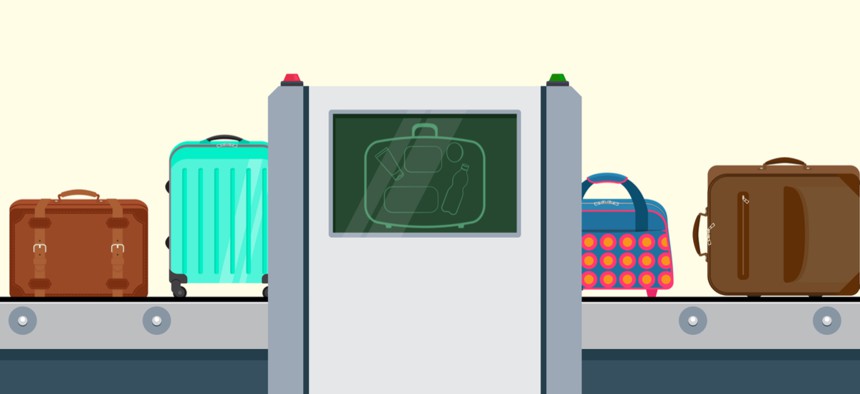DHS Funds Tech to Reduce False Alarms at Airport Security

SmallSnail/Shutterstock.com
A British X-ray tech company won a $1.7 million contract to build software that double checks whether that nail clipper in your luggage is actually a switchblade.
At some point, most of us have had to stand around airport security waiting for agents to confirm that box or bottle in your luggage isn’t a bomb. These false alarms are not only a nuisance for travelers, but they also slow down the airport security process, causing backups at checkpoints and stretching personnel thin.
On Friday, the Homeland Security Department announced it is investing in tech that would significantly cut down the number of mistakes x-ray scanners make when screening bags.
The agency’s Science and Technology Directorate awarded a roughly $1.7 million contract to U.K.-based Halo X-ray Technologies to build software that automatically checks whether the item that set off the alarm is a legitimate threat. If it is, the system would alert a Transportation Security Administration agent to take action, but if not, the tech would clear the luggage without any human intervention.
By offering a second opinion on every checked and carry-on bag that goes through airport security, the so-called “automatic threat resolution system” aims to cut down on false alarms and reduce the need for manual luggage searches.
The company is expected to build a working model of the tech within 24 months, according to the original solicitation.
“By combining [Halo X-ray Technologies’] technology with a primary X-ray transmission scanner, we hope to automatically adjudicate bag alarms, enhancing passenger throughput and improving the passenger experience,” said Program Manager Karl Harris.
The project comes as part of the directorate’s Apex Screening at Speed program, which aims to overhaul the way TSA clears passengers and luggage before boarding a plane. In addition to accelerating luggage screening and reducing false alarms, the program includes a number of hardware upgrades and could one day expand the clearance process beyond the security checkpoint to the entire airport.
NEXT STORY: One Defense Agency is Building a Bot Army






